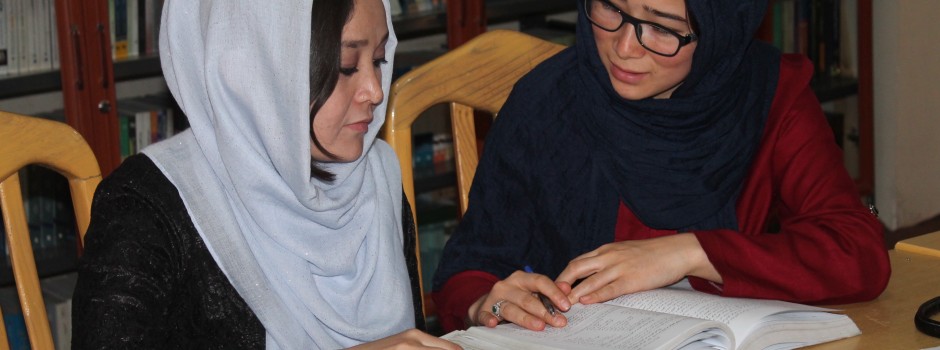Afghan Educated Women’s Service Organisation, Kabul
Project established: 2016 in collaboration with the Cosmopolitan Civil Societies Research Centre (CCSRC) at the University of Technology, Sydney
In Afghanistan, women continue to be marginalised and discriminated against in Afghanistan even once they are tertiary educated. They face daily safety and security issues, harassment, discrimination and limited mobility in work and work and public spaces. Even after achieving a university degree, many give up searching for work – and the picture is worse for women from rural areas.
Securing a job is vital to women’s livelihood to their empowerment. Educated women who have an income are more likely to have their voices heard and drive decisions both within the family and in the public sphere.
The Afghan Educated Women’s Services Organisation (AEWSO) is a newly established organisation in Kabul that aims to equip graduate women with skills and experiences to ensure their economic security and defend their rights in both the public and private sphere.
AEWSO is registered as a local NGO with the Afghanistan Ministry of Economics and is an affiliate of Graduate Women International. One of AEWSO’s founders is Nasima Rahmani. Nasima is a strong advocate for gender equality and education since 2004. She is a long-term partner of indigo foundation through her role as the inaugural director of the Women’s Empowerment centre at Gawharshad Institute for Higher Education in Kabul which indigo foundation has supported since its establishment in 2011.
The current focus of indigo foundation’s support is to co-fund a research project that AEWSO is undertaking in 2016 to identify challenges and opportunities for Afghan graduate women in seeking employment. This project is being conducted in collaboration with Cosmopolitan Civil Societies Research Centre at University of Technology in Sydney. This research will form a base from which AEWSO can identify the barriers and more effectively advocate for greater employment for young graduate women.

